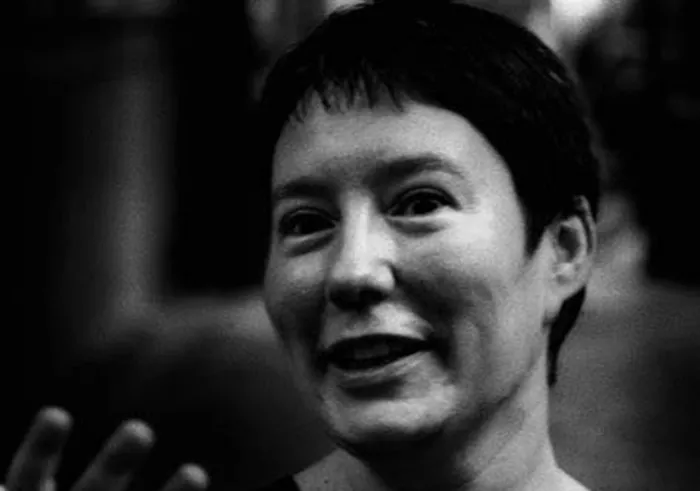Brigitte Oleschinski is a significant figure in the landscape of 20th century German poetry. Born in Cologne in 1955, she emerged as a distinctive voice in modern literature. Her work bridges the traditional and contemporary, weaving elements of history, personal reflection, and the avant-garde. This article delves into Oleschinski’s life, literary contributions, and her role in shaping German poetry in the 20th century.
Early Life and Background
Brigitte Oleschinski grew up during a period of post-war recovery in Germany. The nation was redefining itself, and this tumultuous backdrop influenced many German poets of her generation. The shadows of history, the yearning for identity, and the pursuit of artistic innovation shaped her worldview.
Oleschinski’s academic background included studies in political science, which informed her analytical approach to language and expression. Her understanding of socio-political systems and historical narratives became a recurring theme in her poetry, making her works resonate deeply with readers.
The Themes in Oleschinski’s Work
Oleschinski’s poetry is known for its depth and complexity. She explores themes such as time, memory, space, and existence. Her ability to merge abstract concepts with vivid imagery sets her apart as a 20th century German poet who challenged conventions.
The Passage of Time: Many of her poems reflect on time’s fluidity. Oleschinski often contrasts fleeting moments with the weight of history, a duality that defines much of German poetry in the post-war era.
Interplay of Memory and Identity: As a German poet, she delves into the collective memory of her nation while intertwining personal recollections. This balance of the personal and the historical is a hallmark of her style.
Urban and Natural Landscapes: Oleschinski frequently juxtaposes urban life with the natural world. Her poems capture the tension between human constructs and the organic flow of nature.
Contributions to 20th Century German Poetry
Brigitte Oleschinski’s contributions to German poetry extend beyond her written work. She participated actively in literary circles, mentoring emerging poets and engaging in dialogues about the evolution of poetry. Her works often blur the line between poetry and other forms of art, such as performance and visual media.
Innovative Use of Form and Language: Oleschinski’s poetry defies conventional structures. She incorporates fragmented sentences, unconventional punctuation, and spatial arrangements to reflect the chaos and beauty of modern existence.
Reflection of Post-War German Identity: Her work embodies the struggles and hopes of a generation coming to terms with Germany’s past. This engagement with national identity places her among the most significant voices in 20th century German poetry.
International Recognition: Oleschinski’s poetry transcended German borders, gaining acclaim in various international literary circles. Her works have been translated into multiple languages, allowing global audiences to experience her unique perspective.
Selected Works and Their Impact
Brigitte Oleschinski’s poetry collections are celebrated for their innovation and emotional resonance. Her book Geisterströmung (Ghost Current) stands out as a masterpiece that encapsulates her style. The collection explores themes of movement and transition, both physical and metaphorical.
Another notable work, Your Passport is Not Guilty, uses the motif of travel and borders to question ideas of belonging and freedom. This theme of displacement is especially relevant in the context of 20th century German poetry, where borders—literal and figurative—played a central role.
Legacy and Influence
The legacy of Brigitte Oleschinski is firmly entrenched in the canon of German poetry. Her work continues to inspire contemporary poets, offering a blueprint for innovation while remaining deeply rooted in tradition.
Mentorship and Advocacy: Oleschinski was an advocate for poetry as a dynamic and accessible art form. She encouraged younger poets to experiment and find their voices.
Integration of Technology and Poetry: In her later years, Oleschinski explored the integration of digital media with poetry, a testament to her forward-thinking approach. She believed that poetry could evolve alongside technological advancements, keeping it relevant for future generations.
Recognition and Awards: Throughout her career, Oleschinski received numerous accolades, including the prestigious Peter-Huchel Prize, which recognizes outstanding contributions to German poetry.
The Role of German Poets in the 20th Century
The 20th century was a transformative period for German poetry. Poets like Brigitte Oleschinski played a crucial role in redefining the art form. They responded to the socio-political upheavals of their time with works that were both reflective and revolutionary.
Post-War Reflection: German poets had the unique task of addressing the aftermath of World War II. Poetry became a medium to process grief, guilt, and the need for reconciliation.
Modernist Influences: The influence of modernist movements is evident in Oleschinski’s work. Her use of fragmented structures and abstract imagery aligns her with contemporaries across Europe who sought to break free from traditional poetic forms.
Globalization and Cross-Cultural Exchange: By the late 20th century, German poetry, including Oleschinski’s contributions, reflected global influences. Themes of migration, globalization, and cultural exchange began to emerge prominently.
Brigitte Oleschinski
Oleschinski’s work remains a testament to the power of poetry to adapt and innovate. As a 20th century German poet, she not only preserved the essence of German poetry but also pushed its boundaries. Her poems invite readers to question, reflect, and engage with the world around them.
Her ability to blend intellectual rigor with emotional depth ensures her place as a luminary in the literary world. Whether exploring the passage of time, the complexities of identity, or the interplay of history and personal experience, Oleschinski’s poetry speaks to the universal human condition.
Conclusion
Brigitte Oleschinski is an essential figure in 20th century German poetry. Her work captures the essence of a nation navigating its history while embracing the challenges of modernity. By challenging conventions and exploring new forms of expression, she has left an indelible mark on the literary world.
Through her innovative use of language, thematic depth, and dedication to the evolution of poetry, Brigitte Oleschinski exemplifies the enduring relevance of German poets in shaping global literary traditions. Her contributions remind us of the transformative power of poetry and its ability to illuminate the human experience.

